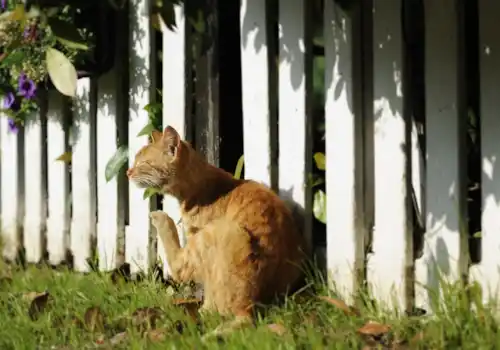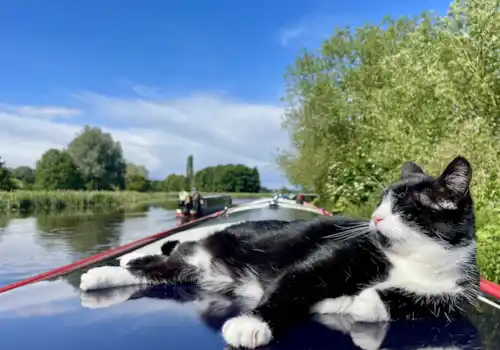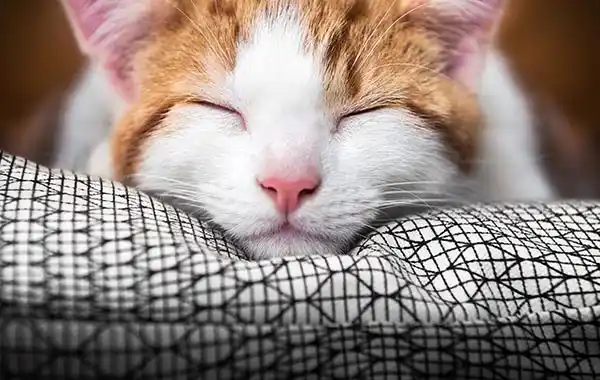Ever heard your cat snoring when they're in a deep sleep and wondered if it's normal? Find out more about why some cats snore.
Just like humans, some cats snore. The snoring noise occurs when air cannot move freely through the nose and throat, making the tissues vibrate. In healthy cats, this occurs when the animal is fully relaxed in a deep sleep, not in the rapid eye movement phase of the sleep cycle. During the REM or dreaming phase of sleep, cats are more likely to twitch than snore.
Overweight cats are more likely to snore than slim ones. The fat builds up around their upper airways, narrowing their oxygen intake. The sound of an overweight cat snoring can be found here. Slim your cat down to a normal weight, and there is a good chance they will stop snoring — or at least snore less loudly!
Cats who sleep in a strange position, which interferes with their breathing, may snore when asleep. Their snoring can be interrupted if they are moved to a more ordinary position.
Brachycephalic or short-nosed breeds like Persians, Exotic Shorthairs, and Himalayan cats are likely to snore due to the pushed-in shape of their skull. The shape of their head can result in narrowed nostrils, nasal passages, and nasopharynx (the connection of the nose to the mouth). Some of these cats may also have an elongated soft palate — the soft tissue that forms the top of the mouth. This can partially block the entrance to the windpipe.
These abnormalities can be so severe that these cats not only snore while they sleep, but they also may have difficulty breathing when they are awake. Vets call this the brachycephalic airways syndrome, and it is also found in brachycephalic dogs breeds like bulldogs.
Cats with really severe breathing difficulties need to see a vet. When awake, they may make a high-pitched noise called ‘stridor’ (as in ‘strident’) or a low snoring noise called ‘stertor’ (as in ‘stertorious’). Coughing and wheezing or laboured breathing with the neck extended are also symptoms that need veterinary help.
Finally, respiratory infections like colds or flu, or allergies, lead to inflammation of the nasal tissue and, therefore, to snoring. Occasionally, snoring may result from a foreign body like a grass seed being caught in the nose. If a cat who normally sleeps silently starts snoring, it needs to be checked out.







